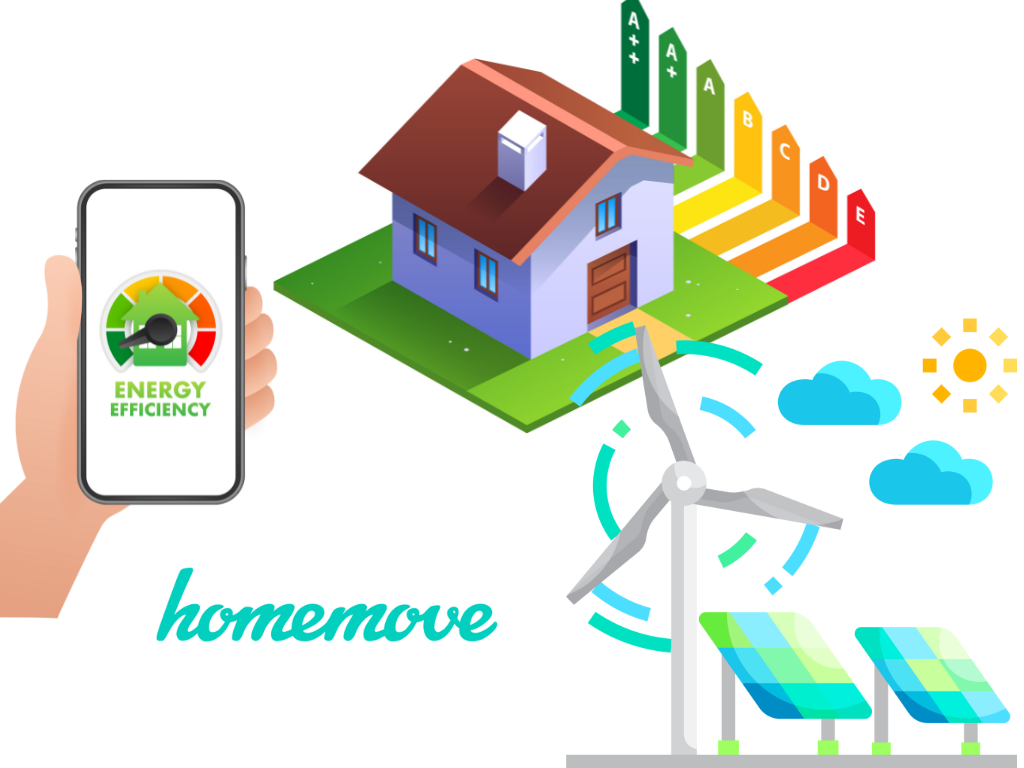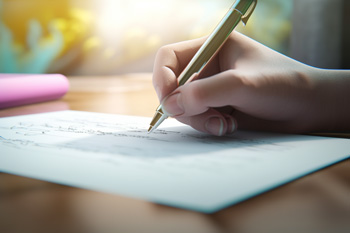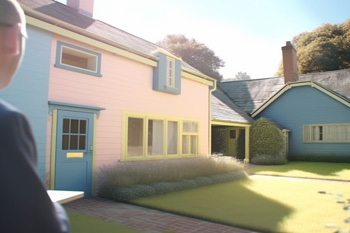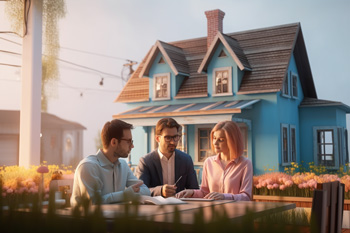Are you looking to sell and buy a home at the same time? It’s definitely possible, but there are a few things you need to keep in mind. So, we have created this guide to help you understand the process involved in selling and buying a home at the same time.
Can you afford it?
One of the first things you need to consider when selling and buying a home is your finances. In your current home how much equity do you have? Also, how much money do you have to spend on a new home?
You need to think about the chain involved when selling and buying. When you buy a home you will need a deposit, the good news is if you exchange the contracts with the seller the same day your buyer exchanges contracts, you can use the deposit you receive from your buyer to pay the seller of your new home their deposit.
However, something to remember is if the home you are going to buy is more expensive than your current home, there is a chance the deposit you need to pay could be higher than the one you are receiving. So, you need to be prepared with the extra money for the deposit.
There is also other costs involved such as estate agent fees, conveyancing fees, EPC fees and more. So, you need to work out if you have the finances. To read more about the costs involved with selling and buying a home you can read our blog posts.
Get a house valuation
Before you put your home on the market, it’s important to get a house valuation. This will help you determine how much your home is worth and how much you can expect to sell it for. It is recommended to get at least three estate agents to do a valuation on your home to get a more reliable estimation.
You can also do your own research to get an estimation. One way is through Haus which is an online valuation website. Haus gives you the price homes in your area were last sold for and an estimation on what they might be worth now. If the agents and online resources estimations are similar then you can be sure they are reliable.
We cover all about getting your home valued in our blog post here.
Get an EPC
An EPC is an energy performance certificate. This certificate assesses the energy efficiency of your home and gives it a rating from A to G. You can not sell your home without an EPC so it is important you have one before putting your home on the market. EPC’s are valid for 10 years so there is the chance you already have one. An estate agent can sort an EPC for you, but if not you’re able to do it yourself by visiting the government website.
If you are unsure about an EPC you can read our blog post here to find out everything you need to know.

Talk to a mortgage broker
A mortgage broker will be able to guide you when selling and buying at the same time. You may be able to port your mortgage over or you may need to remortgage. If you are getting a new mortgage, a mortgage broker can help you compare different mortgage deals and find the one that best suits your needs. They can also help you get a mortgage in principal to find out how much a mortgage lender would be willing to lend you.
Get your documents ready
There are a lot of important documents you’ll need to have in order. Making sure you have them all ready will mean there is no delays in the process. You will need:
- your ID
- proof of address
- bank statements for your mortgage
- proof of income for your mortgage
- EPC
- property title deeds
- property information form/ TA6 form
- electrical certificate
- gas certificate
- FENSA or CERTAS certificate
- any planning permission for work done on your home
Prepare your home for sale
You need to make sure your home is sale ready. This means decluttering, cleaning, and making any necessary repairs or improvements. First impressions are important, so make sure your home is looking sale ready and don’t forget to do the outside of your home as well. We have a list of our top tips for staging your home ready for viewings which you can read here.
Hire an estate agent
Hiring an estate agent is great for making your home sell faster and to reach more potential buyers. Especially, when selling and buying at the same time as you want to get your home on the market as soon as possible and have offers coming in. Estate agents will be able to:
- do a valuation on your home
- provide you with professional photographs
- floor plans
- description of your home
- organise and conduct viewings
- deal with negotiations
- keep everything moving
One way to find trusted agents in your area is through homemove. You just enter your postcode on our website and you can find all the information you need about the agent there. If you need help picking the best estate agent for you, you can read our guide here.
Choose a conveyancer
A conveyancer is a professional who helps to transfer the ownership of a property from the seller to the buyer. They will handle all the legal paperwork and make sure the transaction is completed smoothly. Take a look at our blog here to find out what you need to know before choosing a conveyancer, to help you pick the right one for you.
Agree on a sale price
Once you’ve found a buyer for your home, it’s time to agree on a sale price. This is typically done through negotiations between the buyer and seller. If you’re using an estate agent, they will help to facilitate the negotiation process.
When agreeing on a sale you want to take into consideration the buyer’s circumstances. Are they reliable and can you trust them to go through with the sale? If not then it might be best to find a new buyer.
Also, having your home on the market and having a buyer benefits you when buying your new home as it makes you more appealing to a seller.
Start looking for a new home
You can now start looking for your new home and view properties you like. Some of the best property portals to find a new home on are Rightmove and Zoopla. When you are viewing properties use our handy checklist so you know what to look for and what questions to ask the estate agent about the home.
Make an offer
Once you have found a home you can make an offer on it. You need to decide if you would like to offer the asking price or to try and go below the asking price. Don’t be too worried about going below the asking price as this is very common. It is recommended to go 5-10% lower but no more as you are likely to get your offer rejected. To help you out you can do some research before hand into what price homes in the area you want to buy in sell for. This should help to guide you on what price to offer.
Sort out your mortgage
Hopefully your offer was accepted and you can finalise your mortgage. You will need to decide what type of mortgage you want and how long you want to spend paying it back. You can read more about mortgages and applying for one in our blog posts to help you with the process.
Get a survey done
The next step is to get a survey done on the new home. You don’t have to get a survey but it is best too, as the survey will inspect the property and will identify any defects or problems. This is an important step in the buying process, as it can help you avoid buying a home with hidden problems.
The best type of survey to get is a RICS one, you are able to choose between three different levels of survey depending on the home you are buying. If your home is old and a bit run down it might be best to get a level three survey done as this is the most detailed level of survey.
Plan your completion date
Next, you will need to organise when contracts will be exchanged and what day you will complete on. This is decided between the seller and buyer. If you would like to find out more about exchanging contracts and completion day you can read our blog post here.
Get organised ready for moving
It’s time to start getting organised for your move and packing in advance to ensure everything goes smoothly.
You can use our moving home checklist to help you know what to prepare before moving day, your moving day essentials and the first steps to take in your new home.
Completion
Completion is the final stage of the buying and selling process. This is when the ownership of the property is officially transferred from the seller to the buyer. Your conveyancer will deal with transferring any funds and the keys will be released to you. Once all of this is done it is time to leave your old home and move into your new home.











